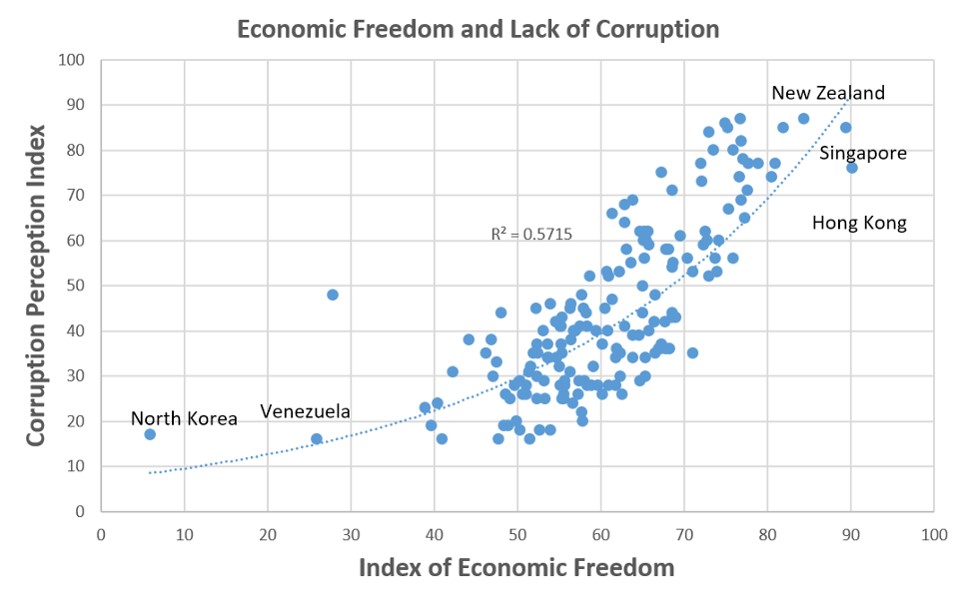Alejandro Chafuen, Acton’s Managing Director, International, writes this morning in Forbes about the relationship between economic freedom and corruption. Transparency International released its 2019 Corruption Perceptions Index last week, and Chafuen correlates these results with countries’ rankings in the Heritage Foundation’s Index of Economic Freedom. As a general rule, greater economic freedom and lower corruption seem to go hand in hand.
Although I was born and raised in a country where corruption, especially petty corruption, had become part of many aspects of life, I only began studying the issue more thoroughly when corruption measurements were published. The first of these was that of Transparency International, which released the Corruption Perceptions Index (CPI) in 1995. The annual index continues to be expanded and improved, and the 2019 ranking was released last week. It covers 180 countries and territories around the world.
The launching of the first indices of corruption coincided with another first, the release of measurements of economic freedom. The Fraser Institute in Canada was the first to begin to study how to measure economic liberties. Soon after, the Heritage Foundation began to produce a competing index. Thanks in part to this healthy competition among think-tanks, both indices have improved in rigor and user-friendliness, and have led to the elaboration of other indices and countless studies. In 1997, Eugenio Guzmán, then a recent graduate of the London School of Economics and today the dean of the school of government at the Universidad del Desarrollo in Chile, and I conducted the first study correlating economic freedom with corruption data from Transparency International.
CPI 2020 and Heritage Index Average Clean Freedom
The study, which shows that there is a strong and significant correlation between higher economic-freedom scores and lower corruption scores, was preceded by an analysis of the theories and studies of corruption which had been conducted until then. Since that first effort in 1997, I have conducted studies and correlated the data on a regular basis, and the basic conclusion and insights remain the same: Economic freedom is a major deterrent to corruption.The 2019 Corruption Perceptions Index and the 2019 Heritage Index of Economic Freedom are no exception. As the chart shows, more economically free countries are also less corrupt. The opposite also holds: countries with the most corrupt leaders and institutions show dismal scores in respect for economic freedom.
Read the entire article here. For further reading take a look at A Theory of Corruption, coauthored by Acton Research Director Dr. Sam Gregg and Osvaldo Schenone.
(Image credits: Alejandro Chafuen.)

